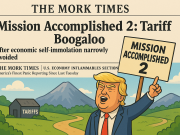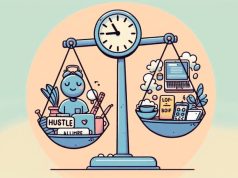In the hustle and grind of the modern corporate world, it’s become a common assumption that longer work hours equate to heightened productivity and success. As companies strive for efficiency and competitive edge, and employees aim to showcase dedication, the standard 40-hour workweek has steadily become a mere baseline rather than the norm. However, this relentless pursuit of working longer to achieve more may be fundamentally flawed. The ‘Productivity Paradox’ arises when we push against the grain of this assumption and ask: are longer work hours truly beneficial for employee output, or are they a silent killer of workforce wellbeing and efficiency?
The implications of elongated work hours are not just anecdotal; they form a body of inquiry within occupational research. Studies consistently illustrate that, after a certain point, productivity does not scale linearly with time spent on tasks. This phenomenon is referred to as diminished returns, where each additional hour contributes less to the overall output and, eventually, could lead to negative productivity.
From a psychological perspective, long hours can erode employee engagement. The mental stamina required to maintain intense concentration wanes with time, leading to a drop in the quality of work. Chronic work-related stress, a byproduct of incessant overworking, can manifest as burnout—a state of emotional, physical, and mental exhaustion that is counterproductive to both the individual and the organization.
Physically, the toll is evident as well. Extended periods of sedentary work can contribute to a host of health issues, ranging from musculoskeletal problems to cardiovascular disease. These health repercussions not only affect personal well-being but also lead to increased absenteeism and healthcare costs for employers.
Acknowledging these impacts, innovative industry leaders have begun exploring alternative strategies that defy conventional wisdom. Companies like Basecamp, Buffer, and even titans such as Microsoft Japan have experimented with 4-day workweeks or flexible scheduling. The results? Many of these ventures have reported an uptick in employee engagement, creativity, and, perhaps counterintuitively, productivity. For instance, Microsoft Japan’s trial of a 4-day workweek led to a staggering 40% increase in productivity. These case studies bolster the argument for a work culture that values quality and efficacy over sheer quantity of hours worked.
So what can employers take away from this? Firstly, it’s essential to recognize the individuality of employees’ optimal work rhythms and offer flexible scheduling where feasible. Secondly, encouraging regular breaks and manageable workloads can promote mental alertness and prevent burnout. Thirdly, companies should prioritize a culture that values output and results over time spent at the desk.
In conclusion, the data speaks clearly: working longer hours does not necessarily mean working smarter. It’s time for employers to shift paradigms and consider strategies that optimize employee well-being and efficiency. By doing so, they not only enhance the quality of life for their workers but also secure a more engaged, vibrant, and ultimately more productive workforce for their business.
As the guardians of The Work Times ethos, we encourage a dialogue on this topic. Share your thoughts and experiences on how work hours have influenced productivity in your life and workplace.




























